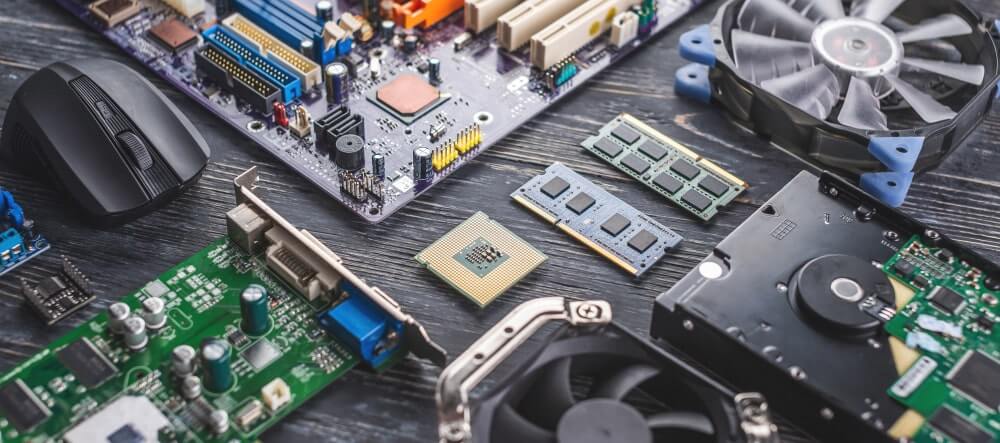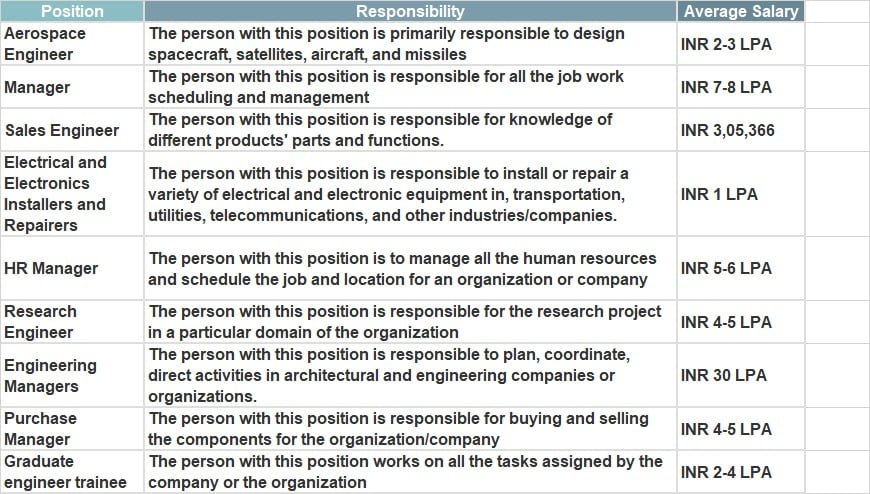

Average Reviews
Description
B-Tech Electrical and Electronics Engineering (EEE) is an engineering branch that delivers theoretical explanations and application of electricity, electronics, communication and electromagnetic principles. EEE Branch is considered as one of the toughest stream of engineering. Electrical Engineer are those who always involves in researches to improve existing Electrical/Electronic devices or create new ones such as flash memory, flat panel displays or semiconductor components, etc.

The Electrical and Electronics Engineers has vast career opportunities and a broad spectrum of applications. Electrical engineers are able to design anything from small applications such as torch lights, Bluetooth headsets to integrated circuits which contain millions and billions of transistors in them.
The field of Electrical and Electronics engineering is very broad and helpful to the society. One who completed EEE are named as Electrical Engineer. In a basic sense, this field of engineering covers the areas like electricity, communications and information processing, as well as to control of machinery (electronics). Although theses amenities can’t exclude from the lifestyle of modern society. An Electrical or Electronic Engineer deals with the design, invention, development, production, installation, operation and maintenance of electrical and electronic equipment’s.
Who Can Pursue a Career in Electrical and Electronics Engineering
If you have an interest in designing or making electrical or electronic devices, becoming an electrical and electronics engineer would be a great career. Electrical and electronics engineers design electrical and electronic equipment using knowledge of electronics, electricity, mechanics, materials and mathematics. B-Tech Electrical and electronics engineers use engineering skills to make products that generate, control, transmit and use electricity. Electronics Engineers are responsible for the design and development of electrical equipment used in various systems. Graduates can either opt for a career in research or teaching or continue studying to become an engineer. Electrical and electronics engineers are required to have numerous skills such as mathematical, practical, and communication skills.
Career Opportunities
- Electrical engineers design and make electrical equipment such as power systems
- Electrical and Electronics Engineers work in many industries.
- They can work for companies that provide electrical power or telecommunications.
- They can work in computer-related industries or research and development laboratories.
- Design the power systems of robots and other industrial machinery.
- They work with all types of electronic components such as resistors, transistors, capacitors, diodes and integrated circuits (ICs).

Eligibility for Electrical and Electronics Engineering (EEE)
- Admission to I year Bachelor Degree in Electrical and Electronics Engineering shall be open to the candidates who have passed the second year Pre-University examination or equivalent examination recognized by the University.
- In addition the candidate shall have secured not less than forty five percent (45%) marks in the aggregate.
- Furthermore, candidates should study Physics and Mathematics as compulsory subjects, along with any one of the following subjects.
- Namely, Chemistry, Bio-Technology, Biology, Computer Science and Electronics.
- Provided that, the minimum marks for the purpose of eligibility shall be forty percent(40%) in optional subjects in case of candidates belonging to SC/ST and OBC candidates.
- Provided further that, the candidate shall have studied and passed English as one of the subjects.
Admission Procedure
- Firstly, The candidate can enrol their registration online or can submit directly in the office.
- Secondly, Candidates should carry photo copies of below mentioned certificates along with original.
- Documents required at the time of submitting the application form
- Class X Marks-sheet
- Class XII Marks-sheet
- Transfer certificate
- Class XII Provisional Certificate
- Character Certificate (recent)
- SC/ST or OBC Certificate
- Passport size photographs
- Photocopy of Address proof
- Migration certificate
Syllabus of Electrical and Electronics Engineering (EEE)

Job Profiles for Electrical and Electronics Engineer

FAQ
Although, It is the branch of engineering concerned with the practical applications of electricity in all its forms, including those of the field of electronics.
However, E&E Engineering have vast opportunities in India and Abroad.
Likewise, An Electrical Engineer can work in different fields with better salary. Check the webpage for more details.
In addition, It is a 4 year course with 8 semester. Check the syllabus given above.
Furthermore, An Electrical engineer should get a minimum of INR 3 LPA.
Colleges

Popular Courses

B.Sc Medical Laboratory Technology

BHMCT – Bachelor of Hotel Management and Catering Technology

BBA – Bachelor of Business Administration

B.Com – Bachelor of Commerce

BCA – Bachelor of Computer Application

BSW – Bachelor of Social Work

BA Journalism and Mass Communication

Bachelor of Physiotherapy – BPT

Doctor of Physical Therapy – DPT

Master of Physiotherapy – MPT
Book Admission
Statistic
Categories
Similar Courses
Colleges with this course


